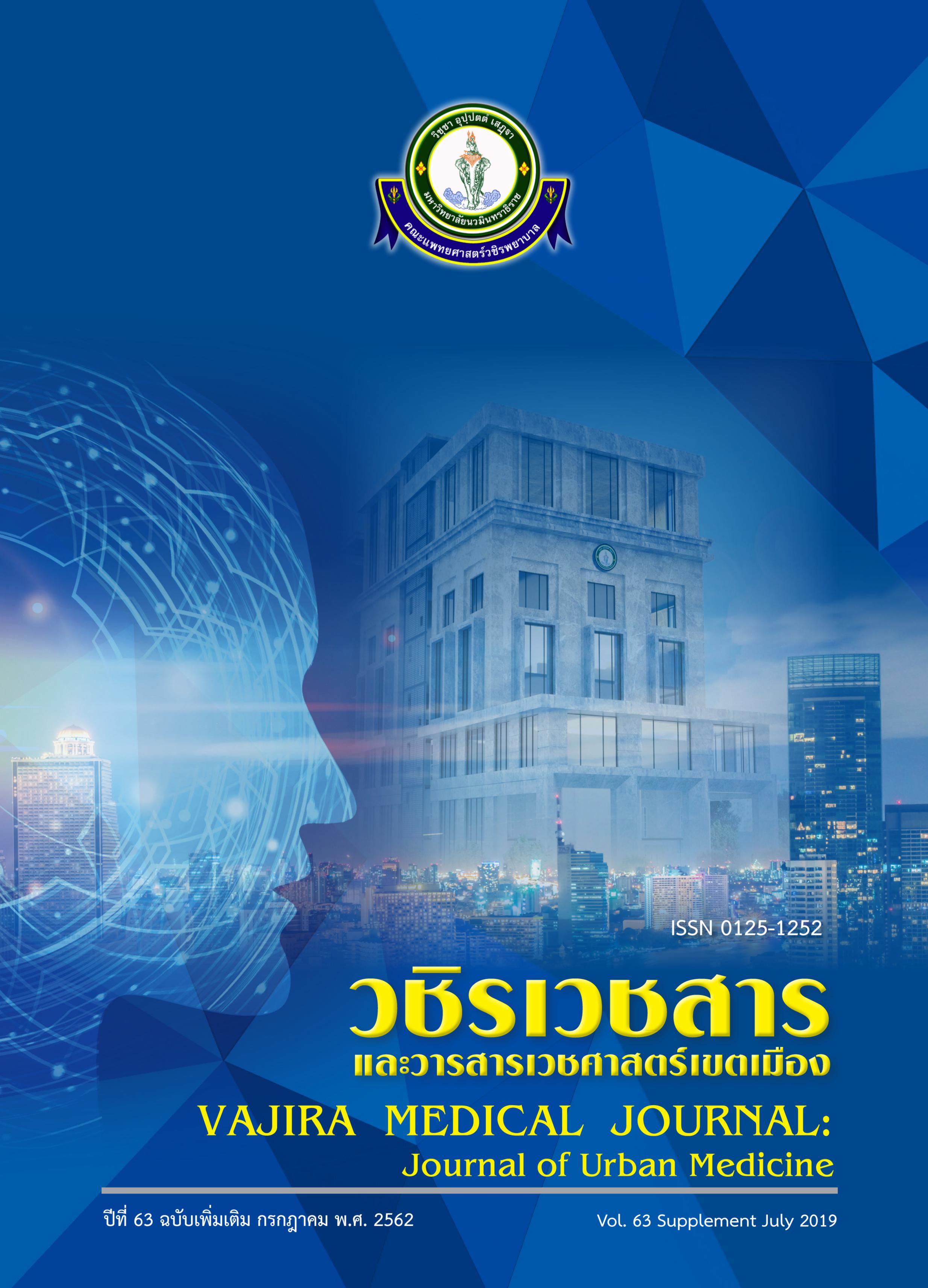Effects of The Modifying Health Promoting Behavior Program on Self-efficacy, Health Promoting Behavior and Health Status of Hypertensive Patients in Community
Main Article Content
Abstract
This quasi experiment research aimed to study the effects of the modifying health promotion behavior program on self-efficacy health promoting behavior and health status of person with hypertension in community. The samples were 60 persons with hypertension in the community which were randomly selected by purposive sampling for the experimental group (n=30) and the comparison group (n=30). The experimental group received the modifying health promoting behavior program based on the Transtheoretical Model for seven times within twelve weeks. The comparison group received a routine care. Data were collected by undertaking the questionnaire and health status self-assessment at the beginning of the program implementation, and the program completion, and at the fourth weeks after the program completion. Data were analyzed by using percentage, means, standard deviation, repeated measure one-way ANOVA. The results revealed that the experimental group has a significantly higher mean score of self-efficacy, health promotion behavior and health status than those at the beginning of the program implementation (p-value<.05). According to the data analysis, this program can promote self-efficacy, health promoting behavior and health status of persons with hypertension. Therefore, health personals could apply this program for providing care among people with hypertension in their community.
Downloads
Article Details
References
2. United Nations DoEaSA. World Population Prospects: The 2015 Revision, Key Findings and Advance Tables. New York: United Nations, Department of Economic and Social Affairs; 2015.
3. Office of the National Economic and Social Development Council. Population projections for Thailand 2010-2040. Bangkok: Office of the National Economics and Social Development Council; 2013.
4. Wilaiwan Thongcharean. Science and Art of Nursing for the Elderly. Bangkok: Faculty of Nursing Mahidol Universit; 2013.
5. Wichai Aekplakorn. The survey of the Thai public health by the 5th physical examination 2014. Nonthaburi: Health Systems Research Institute; 2014.
6. Punsapasit S. National chronic disease problems and Bangkok. 2012. [cited 2012 15 August]. Available from http://203.155.220.217/phpd/ web2011/ filedownload/
7. Kingkaew S. World Hypertension day Sirikit Heart Center. [Internet]. 2014 [cited 2014 15 August]. Available from: http://www.kku.ac.th/kkunews/ content/view/1847/59/.
8. Pender NJ, Parsons MA, Murdaugh CL. Health promotion in nursing practice. 5th ed. ed: Pearson/Prentice Hall; 2006.
9. Office NHS. Local government organization network. bangkok: srimuang printing; 2012.
10. Prochaska JO, Velicer WF, Rossi JS, Goldstein MG, Marcus BH, Rakowski W, et al. Stages of change and decisional balance for 12 problem behaviors. Health Psychol. 1994; 13:39-46.
11. Rueangsiriwat N, Pichayapinyo P, Lagampan S. An Effectiveness of Program Applying The Transtheoretical Model in Dietary Consumption Among Population at Risk of Diabetes Mellitus Type 2. Journal of Public Health Nursing. 2013; 27(1):74-87.
12. Kumla-or U, Rawiworrakul T. Effects of the Transtheoretical Model Application to Promote Hypertension Prevention Behaviors in NonCommissioned Officers Journal of The Royal Thai Army Nurses 2011; 12(3):42-50.
13. Kuakarun Faculty of Nursing. Wat Ruak Suttharam community diagnostic report by 4th year nursing students. Bangkok: Navamindradhiraj University; 2012.


